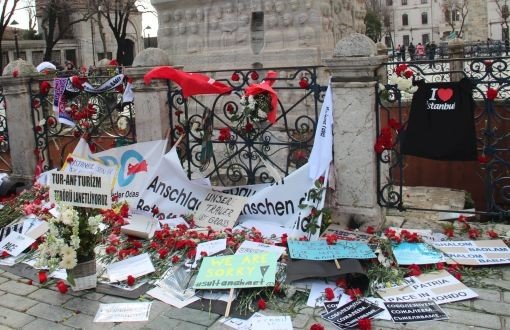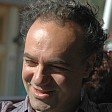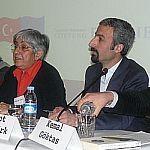Hate Speech is Common - Still no Law
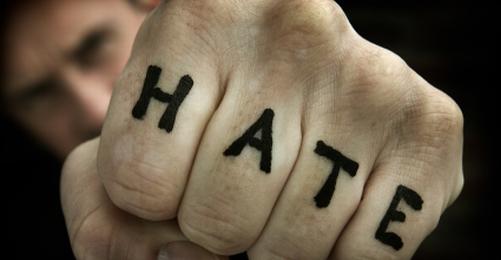
"Hate Speech and Freedom of Expression: Can we not say everything we want?" was the title of the first panel discussion as a start of a series of activities at the Meeting Against Hate Crimes in Istanbul on Saturday and Sunday (19/20 November). The meeting took place at the Dolapdere (Istanbul) campus of Bilgi University.
The panel discussion was attended by Prof Yasemin İnceoğlu from Galatasaray University; social anthropologist Ass. Prof Aykan Erdemir, Bursa deputy of the Republican People's Party (CHP) and former staff member of the Middle East Technical University (ODTÜ); and journalist Pınar Öğünç from the nation-wide Radikal daily newspaper.
İnceoğlu stated at the beginning of her speech that the rhetoric of the media reproduced the rhetoric of the social power. She said that journalists became a part of the social power structure. İnceoğlu considered it a fundamental issue how journalists either reproduced the ideologies they encounter or took a stance against them. She emphasized the importance of how news were being made.
The academic said that hate speech was the origin of hate crime. "It can be identified as the expression of intolerance that encourages and paves the way to hate crime. The targeted groups are being told that there is no place for them in society and this message is constantly renewed. This is a deprivation from the fundamental human rights to life and to participation", İnceoğlu explained.
Hate speech - freedom of expression
"The line between hate speech and freedom of expression must be discussed" the academic pointed out and also mentioned criticism that is coming up regarding a violation of freedom of expression and hate speech.
"Hate speech has started to be recognized as a crime in member states of the European Union. In the USA on the other hand freedom of expression and press freedom are deemed more important".
İnceoğlu continued, "Othering can be seen very obviously in Turkey. We know that we have a media in Turkey that denies humane values to otherised groups and that justifies and legitimizes humiliation and violence inflicted on these groups. You can see hate speech in the headlines frequently".
Another communication is possible
İnceoğlu proposed that hate speech should be reported and monitored. "It is important to decipher [hate speech] in order to create public awareness".
She stressed that peace journalism should be made which does not only show two sides of a conflict but also focuses on the results, relations and violence such as experienced traumata.
"Terms like tragedy, genocide or massacre should be used sparingly. Demonizing, glorifying or victimizing expressions should not be used".
Law on hate crimes
Ass. Prof Aykan Erdemir gave examples of speeches delivered by deputies in parliament that contained hate speech.
He voiced the need for a Law on hate crimes that should cover "race, religion, belief, national origin, sexual orientation, sexual identity, disability and immigration. (...) Hate speech as an unleashing tool for fear should be covered by law".
Erdemir called on the government to collect data related to hate crimes. "The state has to take that duty and should give aggravated sentences if any sort of hate crime and incentive to it is being committed".
Erdemir also suggested a "sensitivity training". Relations with citizens and public officials should be pluralist and should value equal citizenship. In Erdemir's opinion, a law on hate crimes should include compulsory training on sensitivity for persons who are convicted because they committed hate crimes.
Danger of normalization of hate speech
Journalist Pınar Öğünç highlighted that hate speech in the media lead to increased pressure on certain sections. Öğünç saw the biggest danger in a normalization of hate speech.
Importance of news agency journalists
Öğünç also explained how hate speech creates bias in the media. The choices of the media are being reproduced and the words can be seen in the news written by the local journalist. This, according to Öğünç, also included unnecessarily added information on ethnic origin or on gender orientation. She spoke about hate speech that is being published exclusively by reporters and editors-in-chief who approve their writings.
Journalists should be aware of hate speech in news issued by news agencies. The news should then be published by the local journalists by refraining from any hate speech terms. Öğünç emphasized the importance of workshops and studies carried out by non-governmental organizations and academics related to news agency journalists.
‘Adoption Must be Consulted with Child Organizations, not with Religious Affairs’

"Gündem: Çocuk!" Programme on Children’s Rights Steams Live on Medyascope

Right of Individual Application to UN Child Rights Committee

‘Academics Can Sue President for Damages’
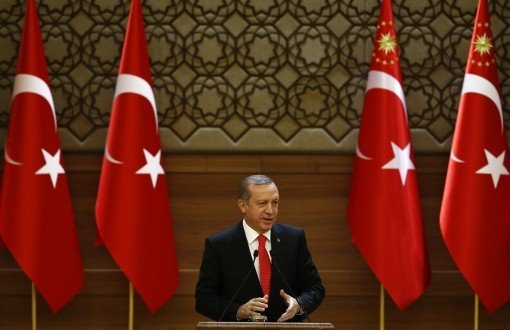
Tourists Speak after Sultanahmet Explosion: We are Here
